-
News & Trends -
Sales -
Marketing Related Topics -
B2B Software Guides Related Topics -
Free Tools & Resources -
- About Us About Us


Sales books are resources focused on teaching salespeople valuable lessons about a range of sales topics, from prospecting and closing to management and metrics. Sales professionals read these books to learn new skills and principles that help them increase their conversions and advance in their sales careers. We’ve curated this list of the best sales books and split them up by role and responsibility so you can find the perfect book for your specific needs.
Here are the categories of the best sales books:
To determine our list, we combed through online book rankings and ratings, as well as interviewed top sellers to identify the best books for any skill level or need. To supplement your reading, also check out our articles on the best sales podcasts and best sales blogs for salespeople.
These books were written with prospecting sales reps in mind — the business and sales development reps and full sales cycle managing reps of the world. They’re full of information about cold calling, emailing, social selling, and qualifying, and they can help you create a repeatable process for booking meetings with high-quality leads.
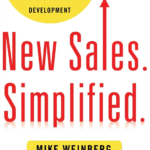
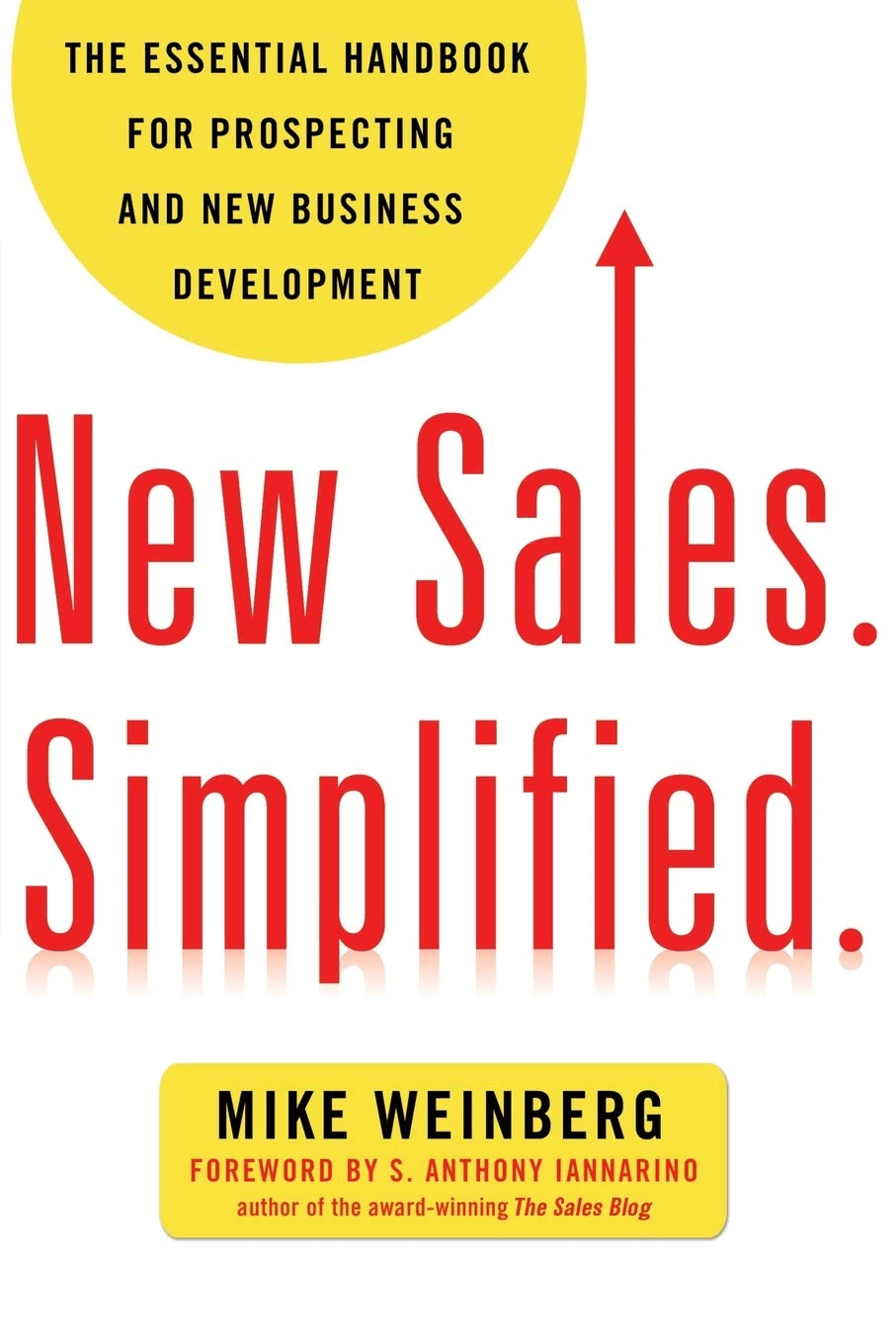
Who Should Read It: B2B sales reps looking to book more meetings by improving their cold outreach strategy.
New Sales. Simplified. by Mike Weinberg, expert inside sales consultant, offers a cold outreach formula that prospecting B2B reps can use to consistently open opportunities with decision makers. When applied, the formula will help you come across as a problem solver to your leads so they'll be more interested in you and your offer. You’ll learn how to effectively cold call, email, and create a customer-focused elevator pitch.
In a time when buyers are particularly skeptical of a salesperson’s intentions, New Sales. Simplified. is an essential read. It teaches sellers a cold outreach strategy that starts the conversation with pain points, establishing trust and value from the first cold call or email.

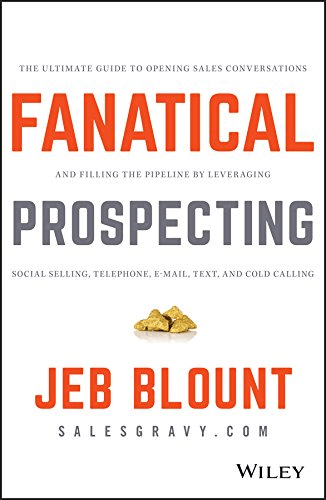
Who Should Read It: Salespeople who want to learn an effective prospecting approach and some nitty-gritty tactics that they can use daily to win more appointments with high-quality leads.
Fanatical Prospecting by Jeb Blount, CEO of salesgravy.com, teaches sellers how to excel in their prospecting activities, from cold calling and emailing to social selling and even texting. In the book, Jeb outlines his unique approach to prospecting that’ll help you overcome resistance and objections and fill your pipeline with quality opportunities.
If you’re looking for some tested prospecting tactics laid out step by step that you can use right away to start more conversations and book more meetings to help you surpass quota, Fanatical Prospecting will be a productive read for you. It’ll also help you dominate social media and turn LinkedIn connections into B2B leads.
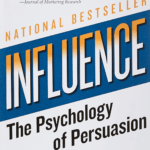
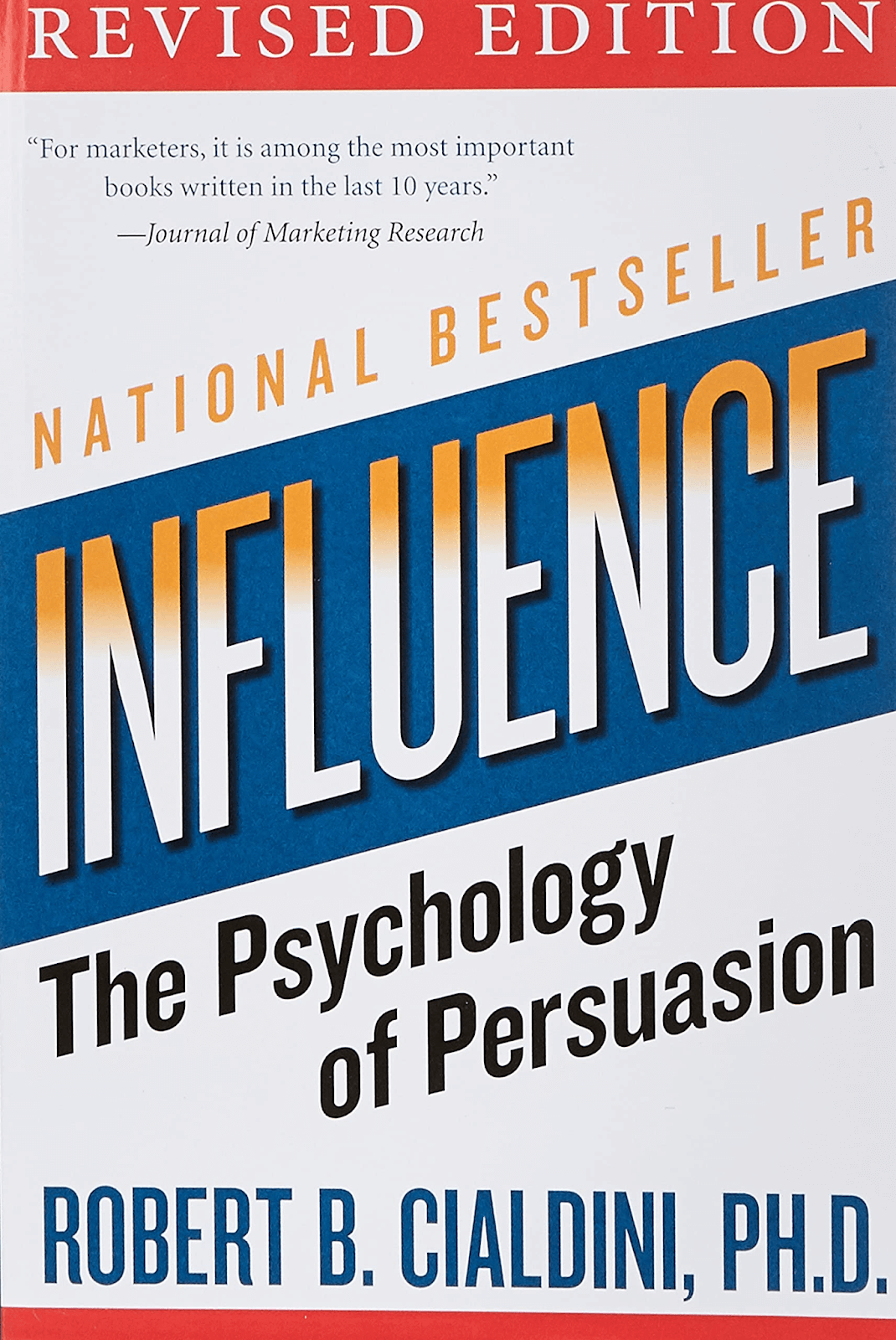
Who Should Read It: Prospecting sales reps who want to learn different psychological techniques for influencing leads to agree to an initial meeting.
Influence, Robert Cialdini’s classic, is broken down into seven chapters, the first of which introduces the weapons of influence. The following six chapters share the six weapons (social proof, liking, authority, and so on) backed by anecdotes that also show you how to apply them.
Influence will give you psychological tactics to open more sales opportunities. Much of cold outreach revolves around catching someone’s eye, making them like you, and influencing a snap decision on their part, and this book deals with all of that.
These books are meant for reps in charge of managing and moving prospects to the finish line. They cover various sales methodologies like SPIN or Challenger selling and give you actionable tips for holding discovery, delivering pitches, giving presentations, handling objections, and, of course, closing the sale.
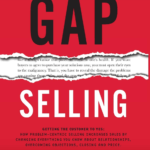
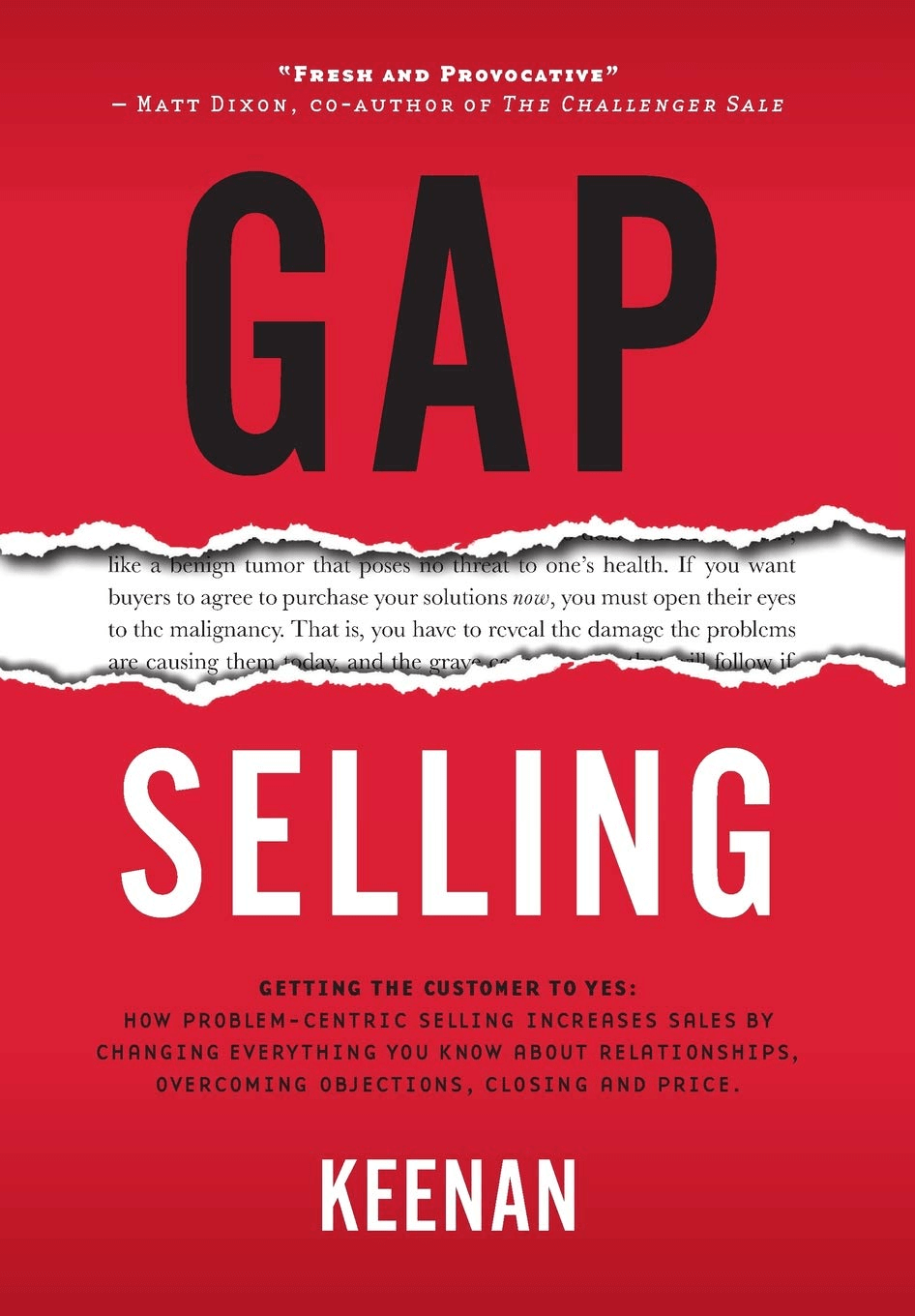
Who Should Read It: Any closing sales rep looking to become better at holding discovery calls and understanding their prospect’s needs.
Gap Selling by Keenan mainly teaches salespeople the importance of doing solid discovery. It explains how to ask prospects the right questions, to listen, and to understand their situation, problems, and the underlying issues. This illuminates the gap between their current situation and their desired one — a gap your solution can fill.
Besides revealing useful discovery tactics, Gap Selling also shares tips on how to better negotiate, overcome objections, and close deals. The problem-centric sales approach you’ll learn will enable you to form better relationships with prospects and close more deals.

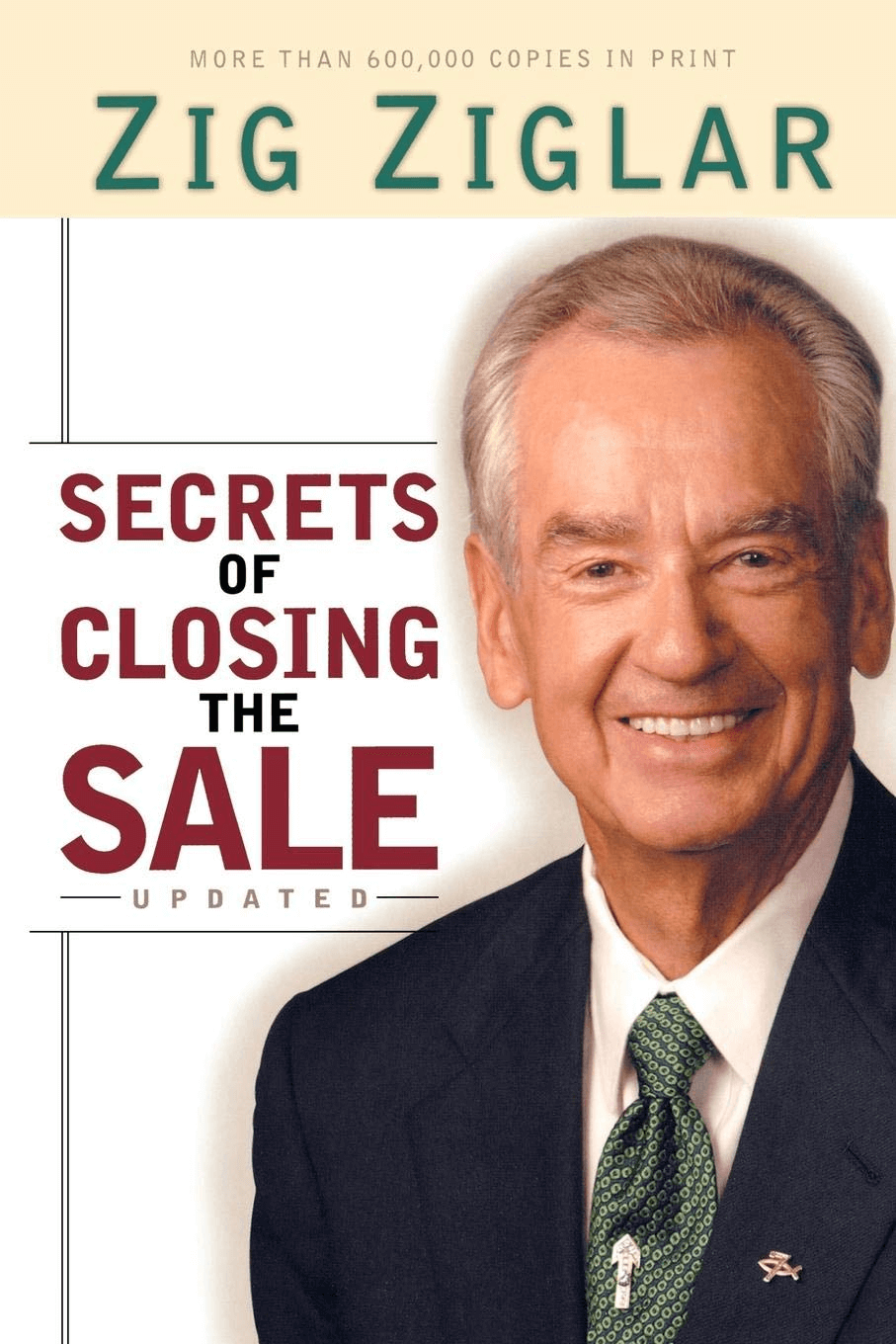
Who Should Read It: Salespeople interested in learning the art of persuasion and how to close a sale from a world-renowned expert.
Secrets of Closing the Sale by sales expert Zig Ziglar is jam-packed with actionable tips you can use to close a sale and real-life sales stories that educate and inspire. In it, you’ll learn various closing techniques, phrases, and questions that will influence the close.
Although Ziglar is often hailed as a guru, he's aware that he’s not all-knowing. So, Secrets of Closing the Sale also includes professional tips from 100+ of the most successful salespeople in the US. These tips give readers other perspectives from different industries and professions.
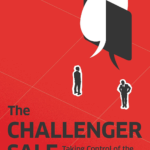
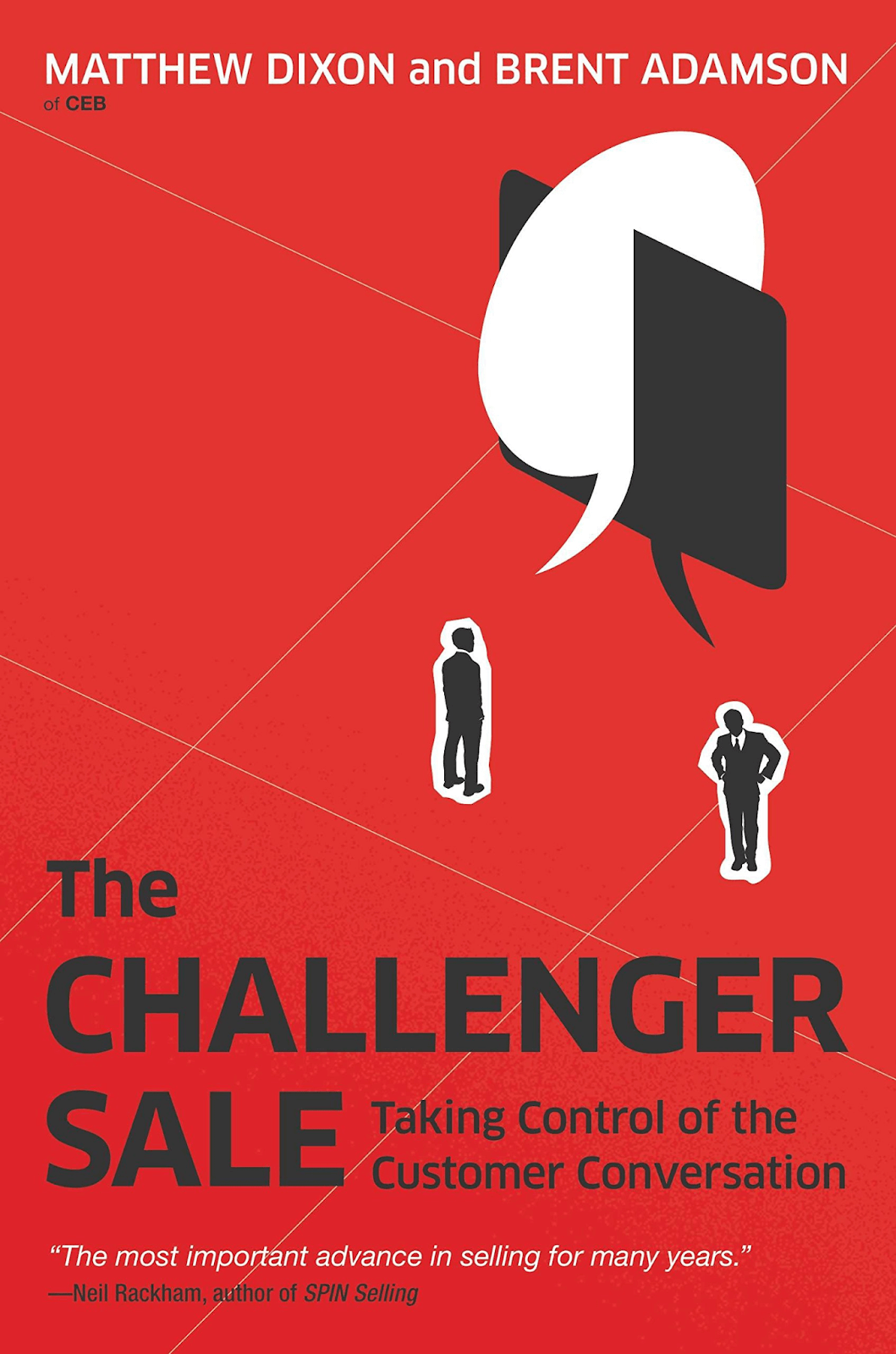
Who Should Read It: Salespeople involved in large-scale B2B deals who want to learn a new sales methodology.
The Challenger Sale by Brent Adamson and Matthew Dixon teaches you the Challenger methodology, which is built on the premise that salespeople must first focus on challenging their prospect’s thinking, rather than on building relationships with them. The book gives you ways to challenge your prospects and win their respect and trust.
The Challenger Sale will help any seller, no matter their current methodology, come across as more confident to their prospects. The book will also key you in to your own sales personality and show you which of your deficiencies you should improve and which strengths you should use more often.

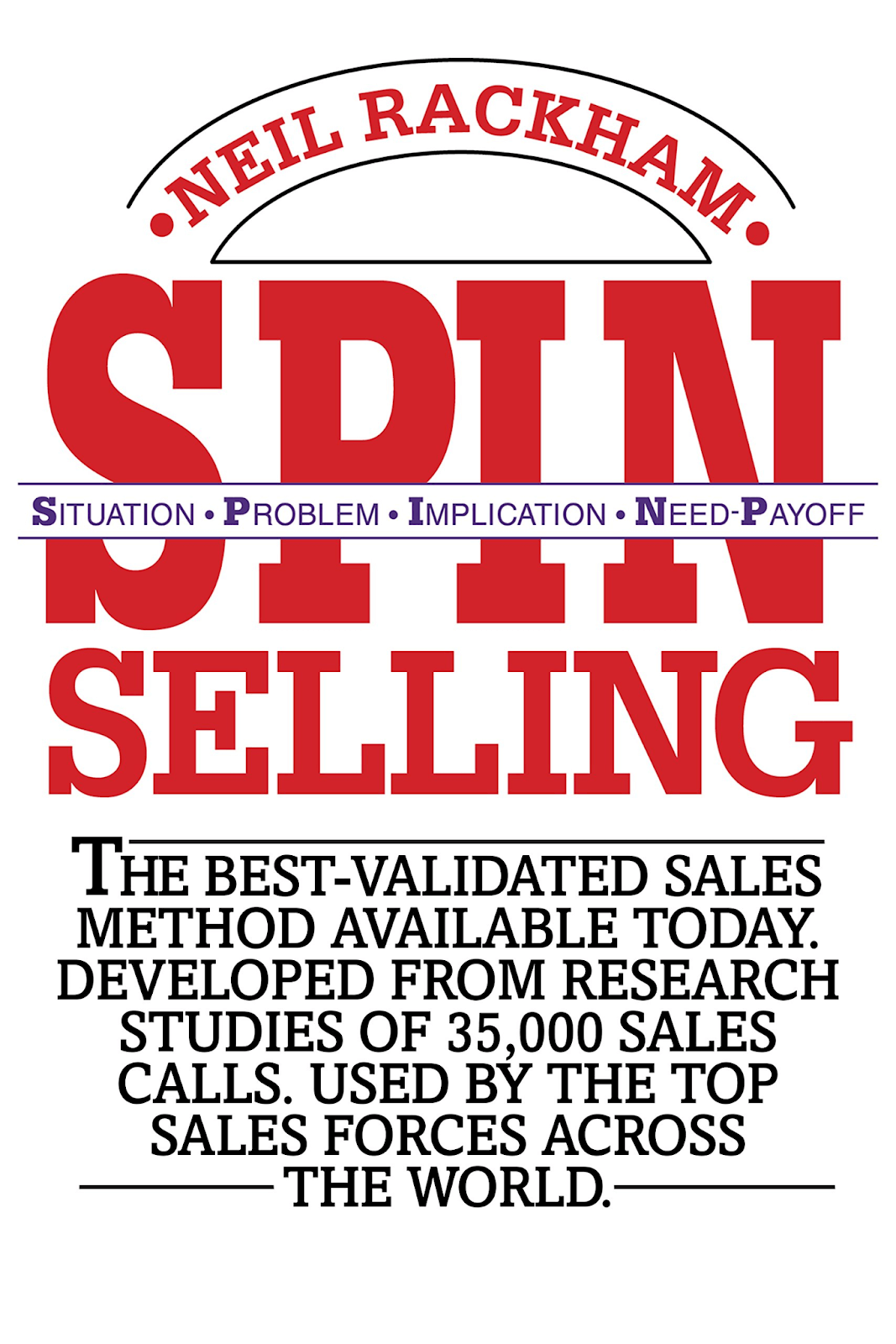
Who Should Read It: Salespeople who want to learn a sales methodology that uses well-timed questions to make prospects aware of their need for your solution.
SPIN Selling by Neil Rackham is the result of over $1 million of extensive research. It teaches you SPIN selling, a question-based sales methodology that helps you nudge buyers toward a close by asking the right questions at the right time. The book shares a step-by-step framework that sellers can follow to drastically increase their sales numbers and also tells you how to structure your sales calls for success.
The shining element of SPIN Selling is the applicability of its strategy; sellers can easily take what they’ve learned into their next call and know what to do and what to ask to get the best results. After reading, you’ll know the perfect questions to ask prospects as they move through the stages of your sales process.

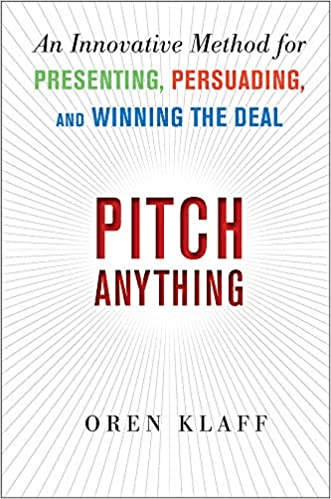
Who Should Read It: Salespeople who want to deliver better sales pitches and presentations.
Pitch Anything by Oren Klaff is filled with techniques and tactics to help business professionals position their ideas in the best ways to win over prospects, stakeholders, or employers. It’s designed to help sellers create irresistible pitches to embed in your calls, meetings, or presentations.
Pitch Anything is most useful for salespeople who are meeting with prospects on a daily basis, but its advice extends beyond the domain of sales. Knowing how to formulate a pitch can help you influence your friends to go see the movie you want, or help you persuade your child of the benefits of eating their broccoli. If improving your oratory and influence is important to you, read this book.
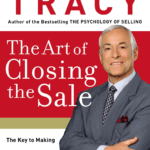
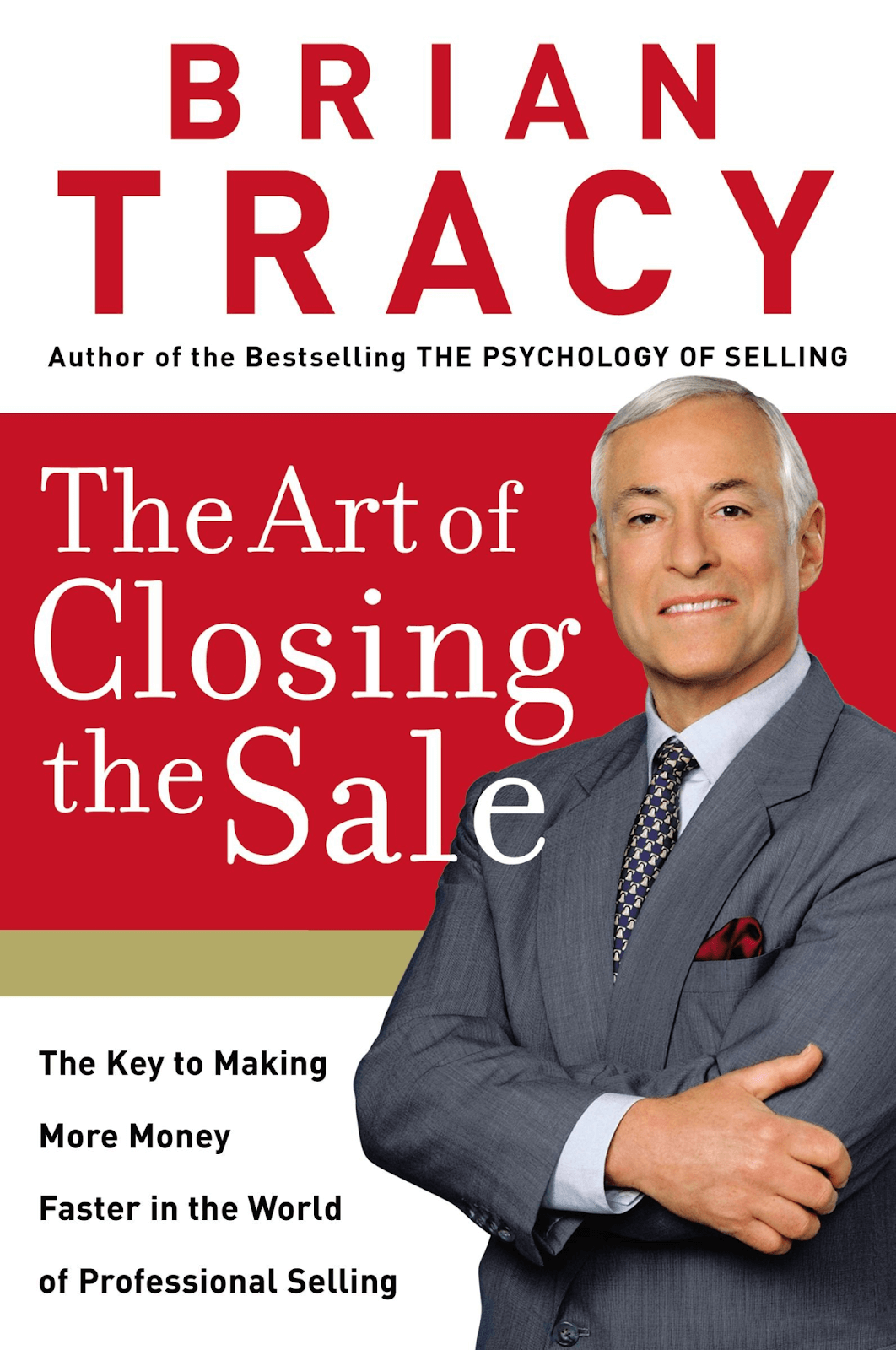
Who Should Read It: Salespeople who want to master the tricky art of closing the deal.
The Art of Closing the Sale by Brian Tracy outlines a proven step-by-step approach for creating a powerful sales personality, tackling objections, and closing sales deals more often and more quickly than ever before. You’ll also come away with programs you can follow, like the 100 Call Method, to improve your self-confidence as a seller.
Required reading for any sales professional looking to grow as a closer, The Art of Closing the Sale will leave you more confident in your ability to take a contact from interested lead to customer. It’ll also prepare to overcome the most common objections prospects mention.
These books are useful for sales managers who must coach and lead a sales team to success. They don't just teach you how to manage your day-to-day management responsibilities like reporting, hiring, and training. They also teach you how to manage and positively impact the morale and performance of your sales reps.
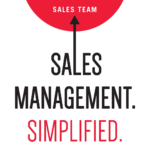
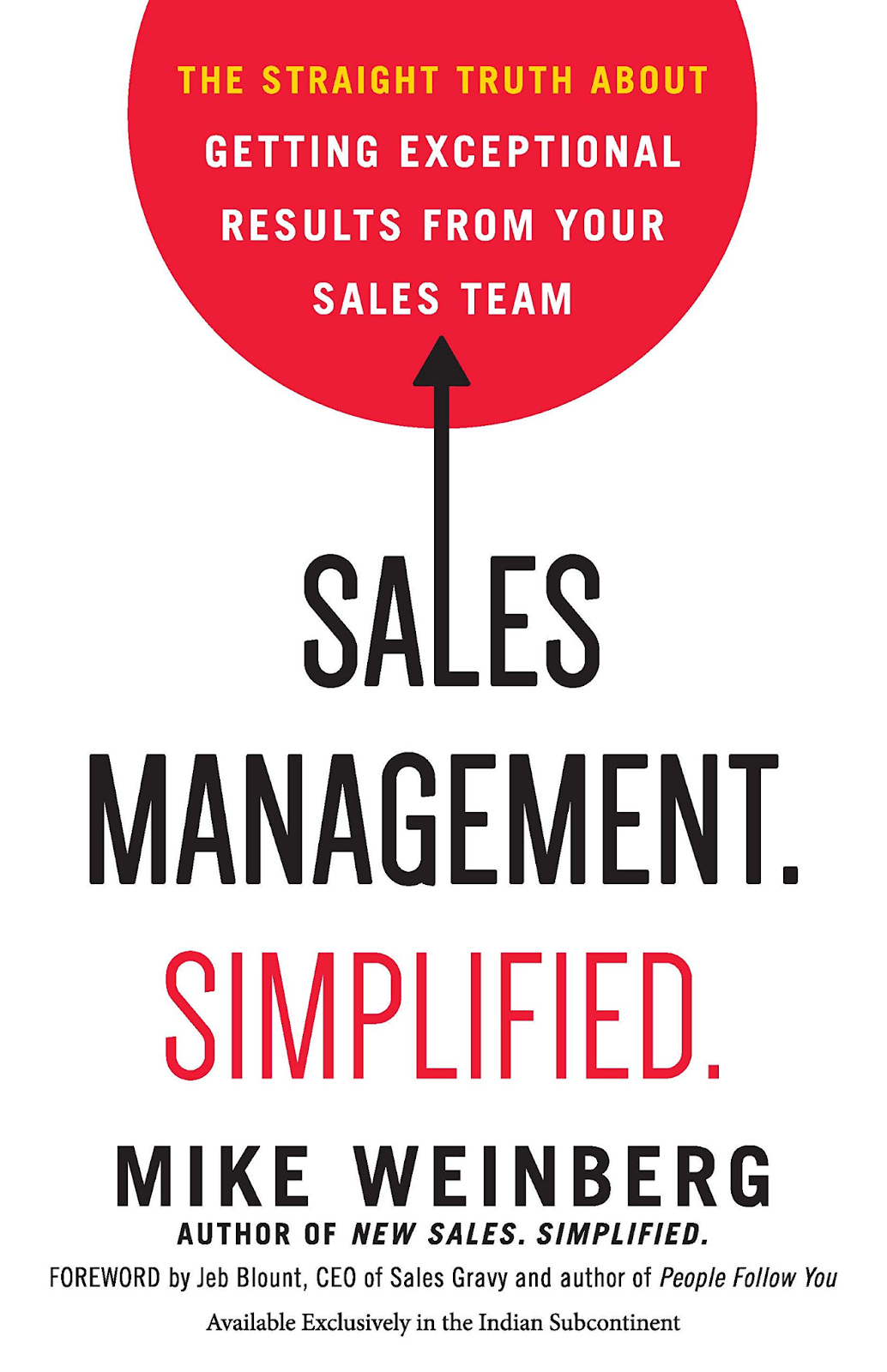
Who Should Read It: B2B sales managers looking to learn an actionable framework for sales management and leadership.
Sales Management. Simplified. by Mike Weinberg walks B2B sales managers through each component of the sales management process. It shows you how to build and structure a sales team and manage the daily performance of individual team members through effective coaching. You’ll also learn the secrets to holding effective meetings.
Whether you’re new to the position or a sales management veteran, Sales Management. Simplified. will provide you with insights and ideas that you can bring to your team immediately. After reading, you’ll be able to immediately apply these management methods to your sales department. For instance, you’ll know how to do a productive pipeline review with a rep.
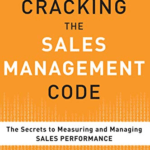
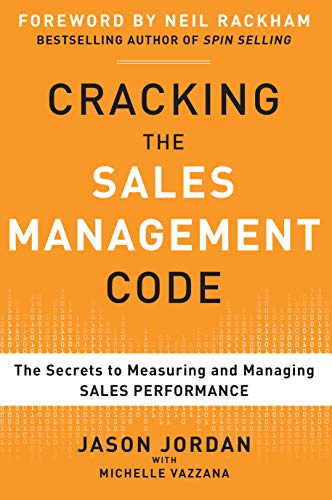
Who Should Read It: Sales managers who want to take a more metric-driven approach to sales management.
Cracking the Sales Management Code shares a step-by-step metric-focused approach sales managers can use to better measure and manage their team’s performance. It’ll also tell you the right metrics you should be tracking to ensure you hit your team and company goals.
Cracking the Sales Management Code argues that any manager who wants to improve team performance can do so by learning how to effectively forecast and report on performance metrics. After reading this book, you’ll be able to accurately assess the reason you’re not hitting some of your sales goals, and fix it.

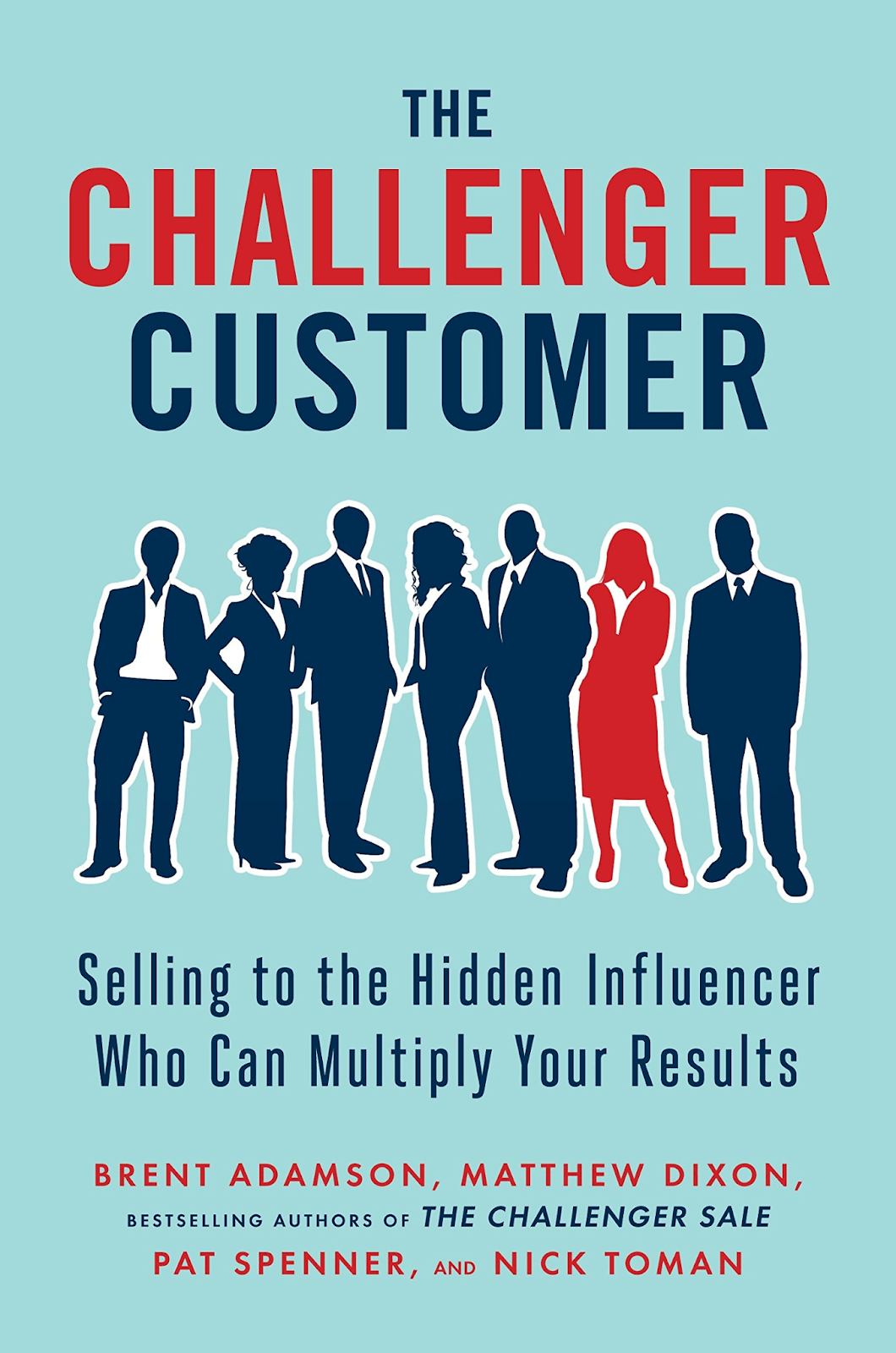
Who Should Read It: B2B sales managers wanting a fresh strategy to open opportunities with enterprise companies.
The Challenger Customer by Brent Adamson, Matthew Dixon, Pat Spenner, and Nick Toman teaches salespeople how to open up complex B2B deals with large companies with multiple potential decision makers. It shows you how to find the influencers in a company, engage them, and give them the tools to sell or champion your product or service internally.
Managers of B2B sales teams can take what they’ve learned from The Challenger Customer and tweak their sales process and strategy accordingly so that their reps are spending time talking with the best possible leads. Managers will also learn how to equip these influencers with the knowledge and content they need to persuade their company’s decision makers.
These books are meant for the small business owners, VPs of sales, CROs, and other executives responsible for revenue growth. They teach you how to create and optimize the various high-level components that come together to create a successful sales department, such as a predictable lead generation process, solid forecasting, a sales tech stack, and more.

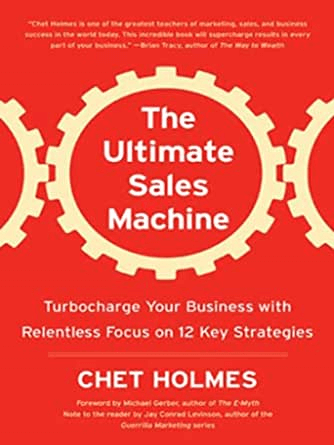
Who Should Read It: Business owners or sales executives who want to improve their business’s bottom line.
The Ultimate Sales Machine by Chet Holmes reveals a systematic approach that business owners can take to gradually improve their business while ignoring the constant trends that more disorganized managers chase. It teaches you the 12 key areas of your business to focus on, how to strengthen them, and tactics for improving the performance of your employees.
The Ultimate Sales Machine drives home the point that focus and consistency are key when you’re trying to grow your business. The book gives you the main few skills that a business exec or owner needs to hone in on to really make a difference in their bottom line, and teaches you how to routinely work on them.

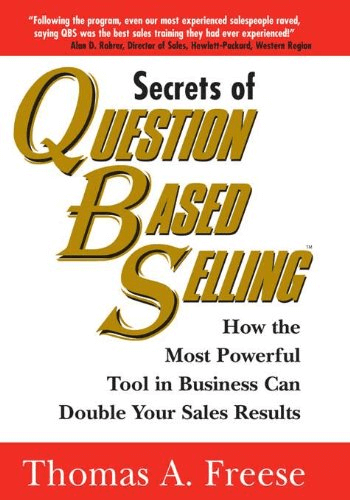
Who Should Read It: C-suiters, directors, or VPs of sales who want to implement a question-based selling strategy.
If SPIN Selling is the bachelor's degree in how to ask the right questions in sales, Secrets of Question-Based Selling by Thomas Freese is the master’s. The book goes deep into the reasoning behind why the questions you ask and how you ask them affect sales results far more than anything you might pitch or say. It also, of course, teaches you how to implement the question-based selling strategy into your company.
After reading Secrets of Question-Based Selling, CEOs, VPs of sales, and other executives will have the power to craft a sales organization that’s focused on asking quality, revealing questions that make buyers trust you and see the value you offer. Execs will be able to train their employees to become relationship-building masters using the strategy in this book.
Salespeople who want to learn some fundamentals of the trade and gain an understanding of what it takes to become a successful salesperson will benefit from reading the following books. They deal with time management, relationship building, and becoming a fast learner.

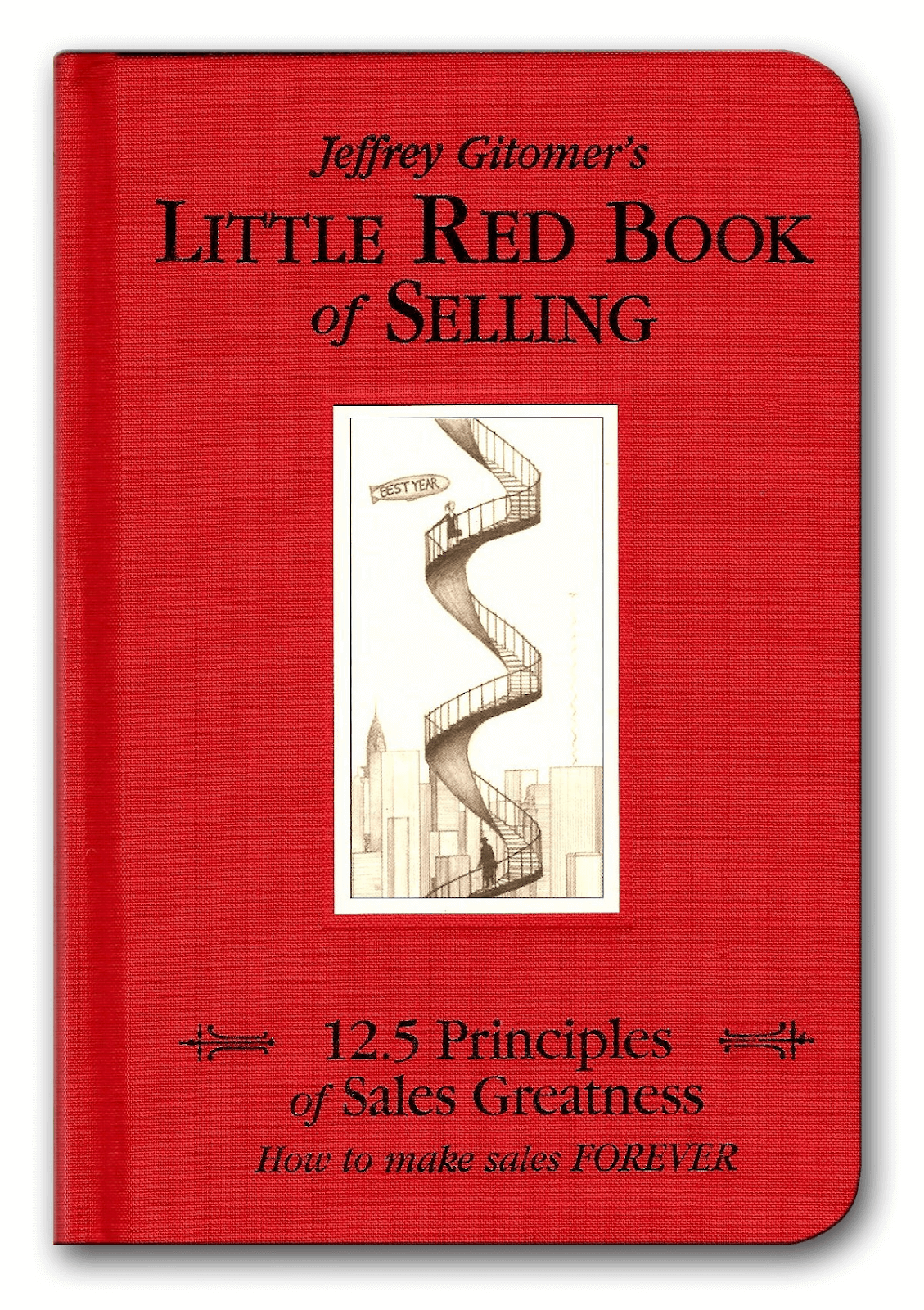
Who Should Read It: Newer sales reps who want to learn the fundamental principles of success in the trade.
Little Red Book of Selling by Jeffery Gitomer is a crucial read for newer sales reps. It provides 12.5 straightforward rules to follow, and a mindset to maintain, as you attempt to generate new business and move up the ranks. It’ll teach you how to overcome rejection, plan your day for optimal output, and believe in yourself as a seller.
A 101 course on the fundamentals of sales success, Little Red Book of Selling is the type of book a sales manager plops down on their new hire’s desk, confident that when applied, its lessons will help them meet or surpass quota.

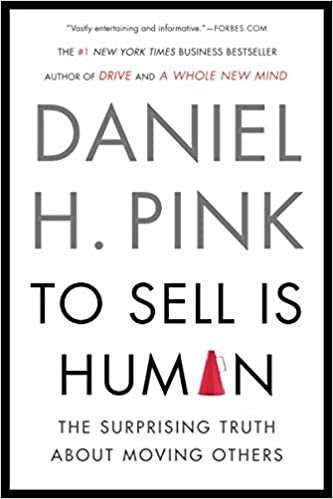
Who Should Read It: Newer salespeople who want up-to-date, simple, actionable techniques for sales success in today’s world.
To Sell Is Human by Daniel Pink is rich in counterintuitive insights like “extraverts don’t make the best sellers." It reveals sales myths that might negatively impact your sales performance and shares the truths that will bolster it. The book offers actionable, evidence-based insights like the five ways to create clear messaging and three rules for understanding prospects.
To Sell Is Human is both enlightening and entertaining, making it a productive and fun place to start as a sales rep trying to understand the nature of sales. Readers will also learn counterintuitive techniques that defy common sales advice, like the six better alternatives to the elevator pitch.

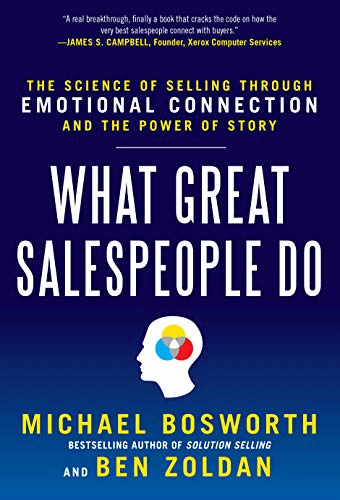
Who Should Read It: Beginner sellers who want to learn how to make connections and form meaningful relationships with almost any prospect.
What Great Salespeople Do by Michael Bosworth and Ben Zoldan teaches a field-tested sales framework oriented around the art of storytelling. You can use this framework to consistently build fruitful relationships with prospects and influence them to accept a deal. You'll also learn how to tell stories that grip the audience and reduce skepticism.
Drawing from discoveries in neuroscience, anthropology, and other academic disciplines, What Great Salespeople Do is full of useful techniques that can help sales reps improve their communication skills. You’ll also learn how to build a collection of sales stories to draw from in each stage of your sales cycle.
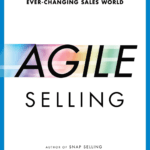
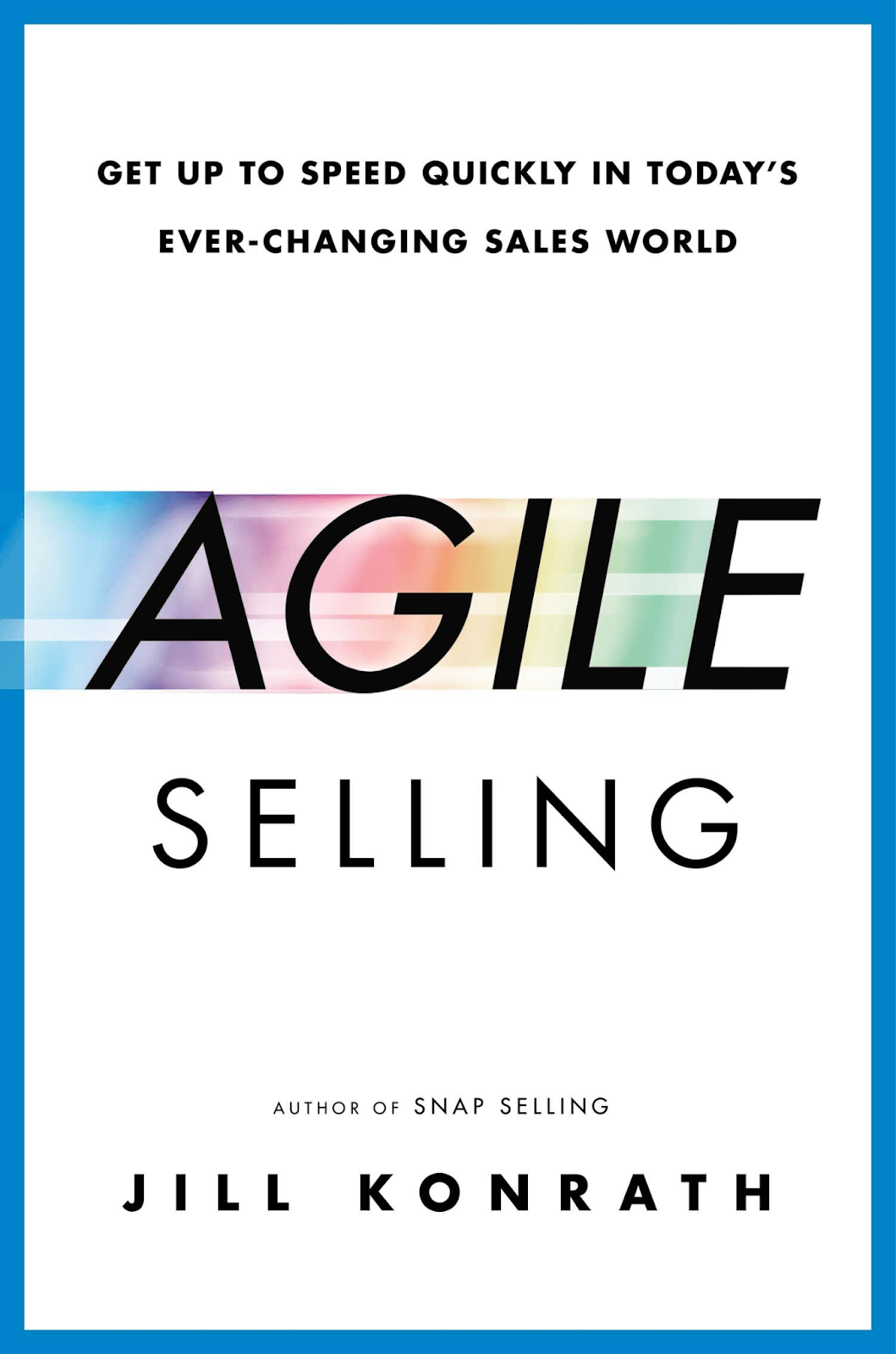
Who Should Read It: Sales reps who are new to an organization or position and need to learn a lot of new information quickly to succeed in the role.
Agile Selling is a guide for salespeople who have recently switched companies or been promoted, or are facing new business conditions, and therefore have a lot to learn and not much time to do it. The book’s packed with strategies to master new sales skills and learn new information quickly, whether it be a new technology, target market, or product.
Agile Selling gives you the methodology for consistently growing your sales skill sets and knowledge bases in this ever-evolving business world. With profound methods like brain recalibration and systemized feedback loops, you’ll have what it takes to become the most informed seller in your field.
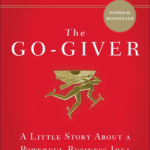
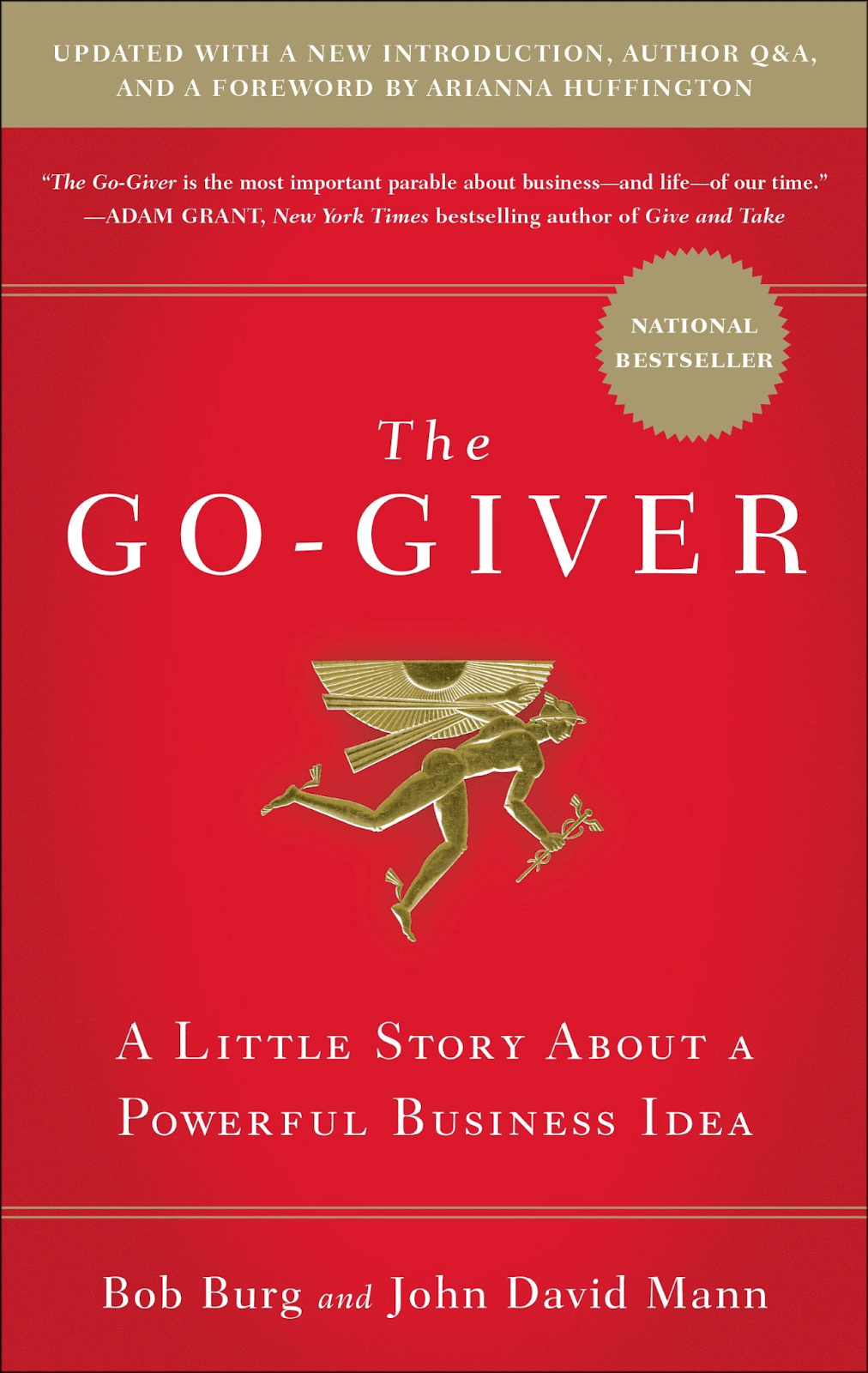
Who Should Read It: Aspiring and new sales and business professionals looking for a quick and entertaining read about how to achieve business success.
The Go-Giver by Bob Burg and John David Mann tells a story about an ambitious young man who desires sales success. The protagonist takes you on his journey learning the five laws of stratospheric success. He speaks with businesspeople and finds that the key to their, and his, success lies in the ancient proverb “give and you shall receive.”
Above all, The Go-Giver is a heartwarming and inspiring story that helps us salespeople remember the most rewarding aspect of sales: improving the lives of our customers. It will give you ideas for creating value for your customers throughout your professional relationship.
These books are meant for any sales professional looking to elevate their game. They cover topics like relationship building, negotiation, and sales psychology that can help salespeople of all positions and industries excel.
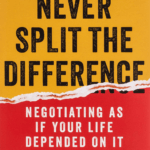
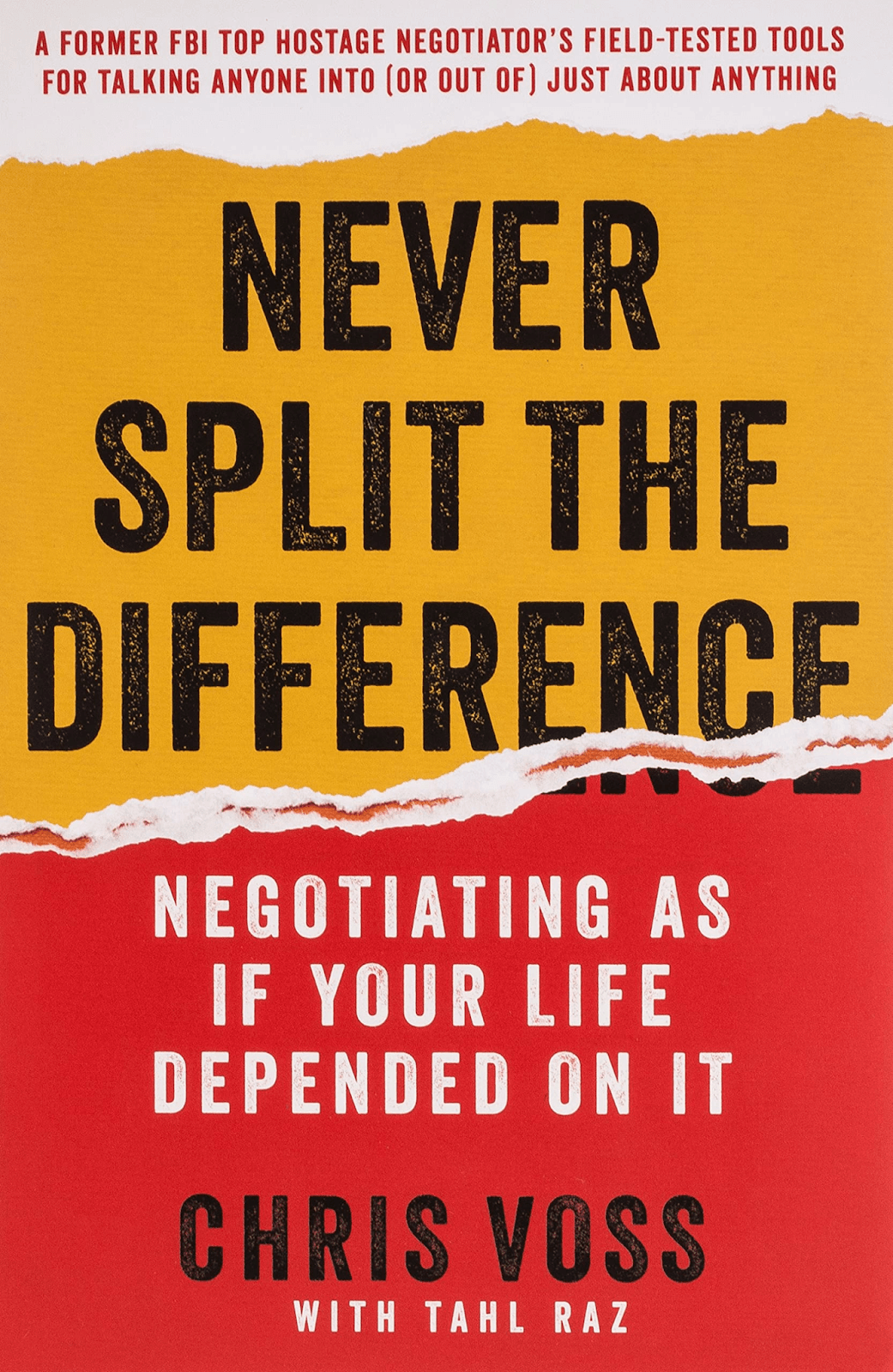
Who Should Read It: Sales reps hoping to improve their negotiation skills.
Never Split the Difference, written by a former FBI hostage negotiator Chris Voss, offers a framework to win all of your negotiations in business and life. The approach is focused on making your counterpart empathetic to and understanding of your needs. The book bestows a lot of information on how to make meaningful connections with strangers.
Never Split the Difference will not only make you a better salesperson, it will also give you the conversational framework you need to become more persuasive in any area of your life, whether that’s negotiating rent or a pay raise. Mirroring and other tactics will also make you a better conversationalist — one who's more capable of forming relationships with buyers.

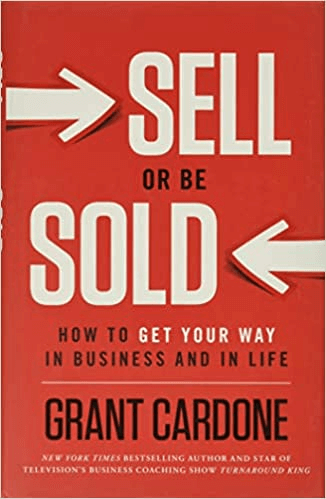
Who Should Read It: Sales reps who want to learn the principles of selling that are transferable to any industry or position.
Sell or Be Sold by Grant Cardone shares straightforward tips about how to excel as a salesperson in any field. Grant walks you through how to handle rejections, turn around bad situations, and get more leads into your pipeline. He also pumps you up and helps you form the right sales mindset to overcome the sometimes debilitating fear of cold calling.
Sell or Be Sold argues that selling is a way of life. Its application is everywhere, even in our own minds, when we try to sell ourselves on a new workout regimen or any decision. The more you understand this, and the more you practice the craft, the better career and life you’ll lead.
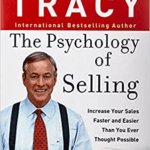
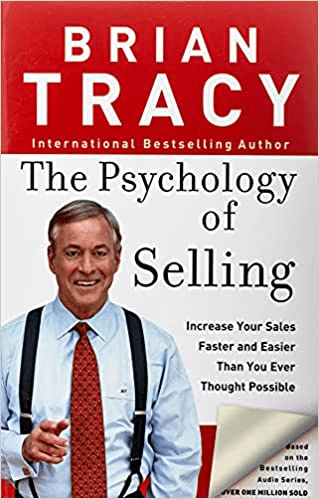
Who Should Read It: Any sales rep interested in using the principles of buyer psychology to their benefit.
The Psychology of Selling by Brian Tracy is loaded with strategies, tactics, and ideas that will help you create an effective sales process. The main theme throughout is that you have to pitch a feeling rather than a product, and this book shows you how to do that. It’ll also give you eleven reasons why prospects decide to buy from sellers.
After reading The Psychology of Selling, any salesperson will likely find within themselves a burning desire to try out Tracy’s recommended tactics, since he delivers them with such an inspirational voice. You’ll want to test out the power of suggestion in your next sales meeting or begin tomorrow morning by plotting out the six sales goals he recommends setting.
Sales books can help you improve in many areas of sales. However, it’s important to remember that just reading isn’t enough to reap the benefits of books. You have to actually take what you've learned and test it out on the job. Learned a new cold calling script? Great, go try it. Only after application will this knowledge become solidified in your mind and start producing a book’s promised results. To learn more for your sales profession, check out our sales career page.


Sam is a former SaaS sales rep turned freelance writer. He spent his career selling real estate technology to C-suite executives before switching over to blogging, where he now covers sales, marketing, and small business topics. Sam specializes in lead generation, lead nurturing, and deal closing articles for Selling Signals. When he’s not researching the latest sales trends, he’s either penning short stories, hiking, or reading in NYC’s Washington Square Park.

Selling Signals delivers actionable advice for sales and marketing professionals. Learn strategies that help you hit targets, strengthen customer relationships, and win more business. Get expert advice on lead generation, sales processes, CRM software, sales management, and account management directly to your inbox.
Property of TechnologyAdvice. © 2026 TechnologyAdvice. All Rights Reserved
Advertiser Disclosure: Some of the products that appear on this site are from companies from which TechnologyAdvice receives compensation. This compensation may impact how and where products appear on this site including, for example, the order in which they appear. TechnologyAdvice does not include all companies or all types of products available in the marketplace.